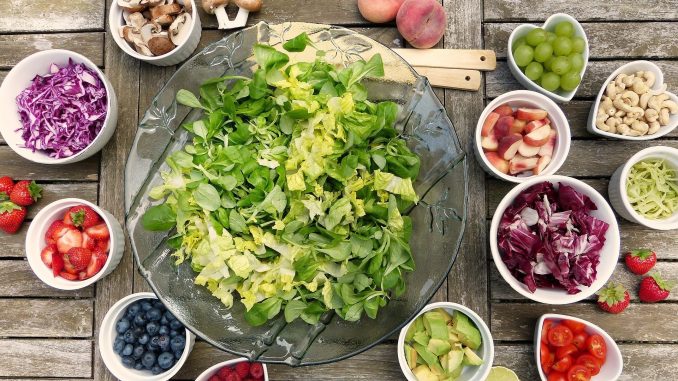
What you eat affects almost every aspect of your overall health.
It can give you more protection against many chronic diseases, especially high blood pressure, cardiovascular disease, cancer, and type 2 diabetes.
Ensuring that you get a wide variety of nutrients can also help your body to fight off illnesses and avoid health problems. Deficiencies in some nutrients can lead to an array of health problems, and can also weaken your immune system.
Plus, it can help you feel more energetic, improve your mental health, and reduce stress.
What is a healthy diet?
To promote a good health, you should aim to include all the major food groups in your diet:
Protein
This is essential to building and repairing muscle and tissue, as well as supporting your immune system. Protein is important for building and maintaining your muscles, as well as a number of other benefits.
You can eat animal protein, like meat or fish or plant based protein, like pulses, beans, or nuts.
In addition to this, these foods also contain other vitamins and minerals. For example, oily fish is an amazing source of omega-3 fats, and these can drastically reduce the risk of developing heart disease.
Carbohydrates
These fuel the body and give you the energy you need to function properly. Carbohydrates can sometimes get a bad name. They’re associated with weight gain, along with other unpleasant side effects like bloating and tiredness.
However, the right types of carbohydrates are an essential part of a healthy diet. To get the maximum benefits, try and make sure your meals are based on high-fibre options.
This includes potatoes with the skin on, brown rice, wholegrain bread and pasta, or wholegrain cereals. Choosing a high high fibre version will help you to feel fuller for longer and this will give you the energy you need during the day.
Vitamins and minerals
Vitamins and minerals are essential to a healthy diet. Vitamins A, C, and D provide important antioxidants that protect your body’s cells, and B vitamins extract energy from your food and give you balanced energy levels
Calcium is essential for strong, healthy bones. Sodium and potassium help your nervous system to transmit signals across the body.
Fruit and vegetables are a major source of a lot of vitamins and minerals, and, of course, fibre, which is essential for a healthy digestive system.
You should try and aim for at least five portions of fruit and vegetables a day. These can be fresh, but they could also be frozen, dried, canned, or in a juice or smoothie.
How to maintain a healthy diet
Maintaining a healthy diet requires a careful balance between making sure you get enough calories, whilst still ensuring your body gets all the essential nutrients it needs to function properly.
Maintaining a healthy body weight is key. And in order to do that, you need to make sure that you’re consuming the right number of calories every day.
This will vary from person to person. How many calories you need will depend on a number of factors, including:
- How active you are
- Your age
- Your gender
- Your natural body size
- Your metabolism
Most experts say that the average man will need around 2500 calories a day, and the average woman will need around 2000. You can calculate the number of calories you need here.
As well as consuming the right number of calories, you also need to make sure that you’re getting enough nutrients, including vitamins and minerals.


Leave a Reply